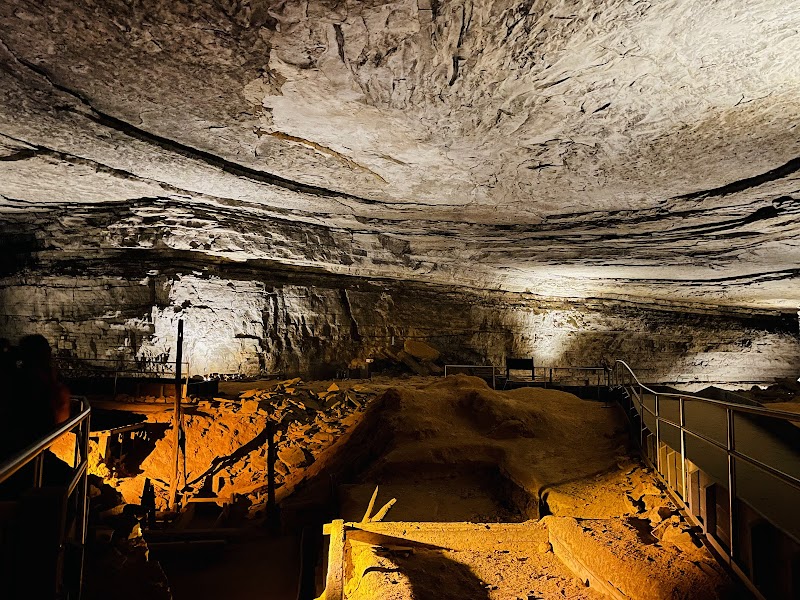
The Natchez Trace Parkway Adventure Ride: Scenic Biking Through History
Embark on a scenic cycling adventure along the Natchez Trace Parkway, where rolling hills meet rich American history. This ride offers both thrilling terrain and quiet reflection spots, perfect for adventurers eager to explore nature’s enduring path with a practical edge.
Hydration is Key
Carry at least 2 liters of water and drink regularly, especially during summer rides when heat demands constant replenishment.
Prepare for Variable Weather
Layer clothing and pack a lightweight rain jacket since conditions can change rapidly along the route.
Use Proper Footwear
Wear cycling shoes with sturdy soles and good grip to handle both smooth pavement and rougher shoulder paths safely.
Plan for Limited Services
Stock up on snacks and supplies at key visitor centers—food and bike repair shops are few and far between.
The Natchez Trace Parkway Adventure Ride: Scenic Biking Through History
Stretching 444 miles from Natchez, Mississippi, to Nashville, Tennessee, the Natchez Trace Parkway offers an unparalleled adventure for cyclists seeking a blend of scenic beauty and deep-rooted history. This winding road cradles thick forests, rolling hills, and historical landmarks that beckon riders to engage with the past while pushing their own limits. On two wheels, the ride reveals how nature and history coexist — with rivers daring you forward and ancient trees shading the path, creating an ever-changing rhythm to your journey.
The Parkway features predominantly paved, gently rolling terrain, making it accessible yet demanding enough to satisfy both casual cyclists and seasoned riders. Expect elevation gains averaging 100 to 400 feet between stops, with stretches of flat road punctuated by steady climbs that test your endurance. Along the way, bike lanes and wide shoulders provide safety, but keep in mind that the winding stretches require focus and control.
Highlights include quiet woodlands where the sun filters through leaves like a spotlight on a stage, historic stops like the Tupelo Visitor Center, and the remnants of ancient Native American trails beneath your tires. The ride is more than a workout; it’s an invitation to feel the pulse of a landscape that’s fiercely itself — unhurried yet relentless in its natural rhythms.
Practical planning is crucial: stay hydrated with at least two liters of water daily, use durable cycling shoes with ample grip for varied terrain, and time your ride to enjoy early mornings or golden afternoons when temperatures are cooler and wildlife is more active. Weather can shift quickly, so layering clothes and carrying light rain gear is wise.
Facilities are spaced sparsely along the route, so load up on snacks and water at visitor centers. Mechanical issues demand basic repair tools and a willingness to adapt. Cell service can be limited, heightening the importance of preparedness.
Whether you aim to complete sections over multiple days or tackle shorter, rewarding segments in a single outing, the Natchez Trace Parkway is a practical yet invigorating cycling experience that connects you directly with the land’s enduring spirit. It requires respect for its challenges, appreciation for its quiet beauty, and readiness for the unexpected turns that define adventure.
Nearby Trips
All Adventures
Boat Charters
Water Activities
Adventures near Franklin, Tennessee
Discover the unique and memorable adventures that make Franklin, Tennessee special.
Frequently Asked Questions
How long does it take to bike the entire Natchez Trace Parkway?
Covering all 444 miles typically requires about 4 to 7 days depending on fitness level and pace, factoring in stops to explore historical sites and rest.
Are there bike rental options near the Parkway?
Bike rentals are available in nearby cities like Franklin and Natchez, but it’s recommended to bring your own bike for best fit and durability.
Is the Parkway safe for solo cyclists?
Yes, but solo riders should inform someone about their plans, carry a charged phone, and be prepared for stretches with limited cell coverage.
What amenities are available along the route?
There are visitor centers with restrooms, picnic areas, and water fountains spaced unevenly; food services are limited, so carry snacks and supplies.
Can families with children comfortably bike here?
Certain shorter sections are family-friendly with gentle terrain, while longer rides require more stamina and skill; always assess your group’s abilities.
Are there any permits or fees to bike the Parkway?
There is no fee or special permit required for biking the Natchez Trace Parkway—parking fees apply at some visitor centers.
Recommended Gear
Helmet
Protects against head injuries; mandatory for safety on winding roads with variable traffic.
Hydration Pack or Water Bottles
Keeps you hydrated during long stretches with limited water stops, especially crucial in hot weather.
Multi-tool Kit
Allows on-the-spot bike repairs such as fixing chain issues or adjusting brakes to avoid being stranded.
Light Rain Jacket
Protects from sudden showers and wind chills across variable seasonal weather conditions on the Parkway.
Local Insights
Hidden Gems
- "The Meriwether Lewis Monument Overlook offers a quiet spot with a panoramic view seldom crowded by visitors."
- "Beechwood Rest, a lesser-known picnic area, provides a serene break amid tall hardwoods."
Wildlife
- "Wild turkey often cross paths at dawn and dusk."
- "White-tailed deer are common and watchful neighbors along forested sections."
History
"The Natchez Trace follows an ancient travel corridor used by Native Americans, early European settlers, and traders; several historic sites along the route recount stories of early American frontier life."
